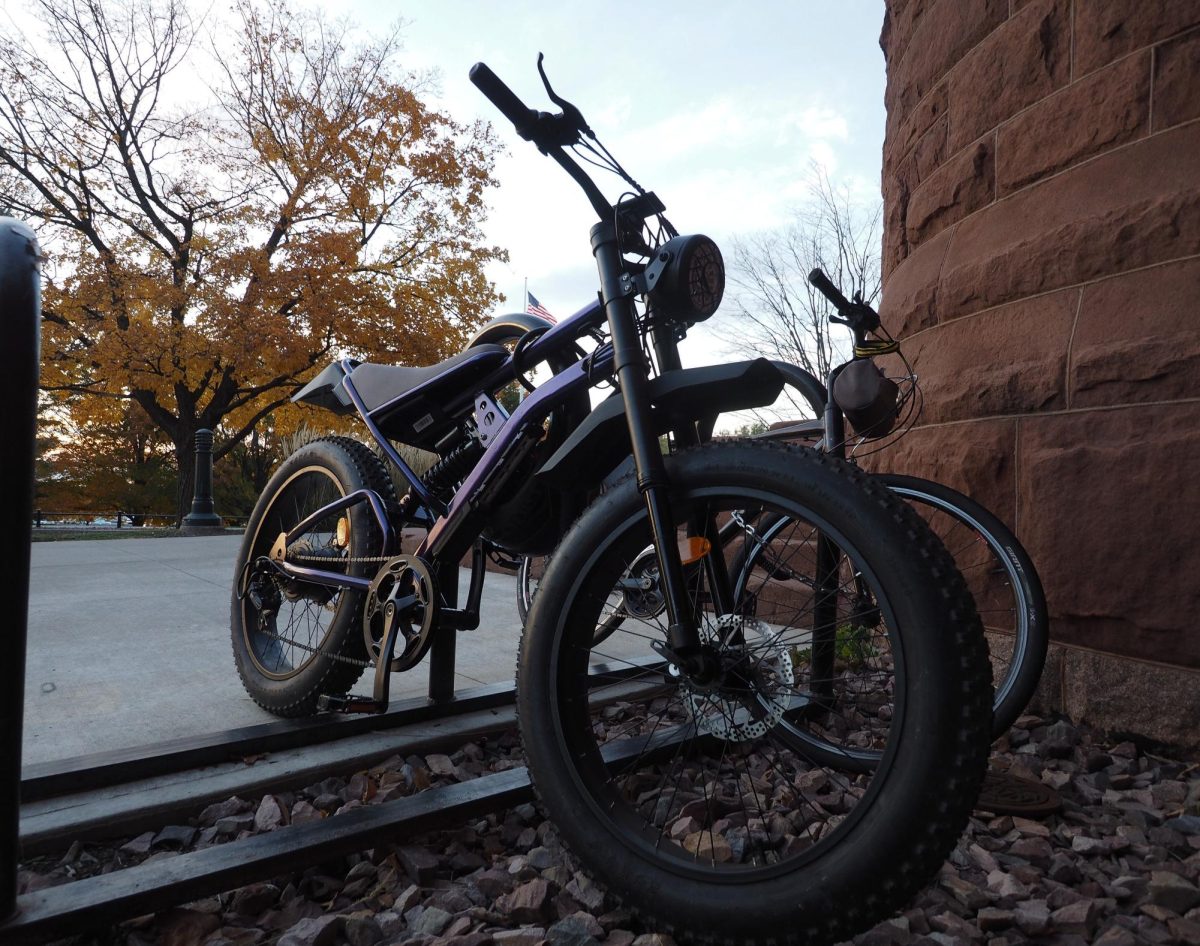Motorized and electric vehicles continue to buzz through student-dominated streets of UVM, however, their legality and safety remain vague.
From the obvious perk of these bikes being efficient modes of transportation, they also provide a solution to the parking issues faced by those without commuter passes.
“Parking is so much better,” said sophomore Daniel Cooper, who said he has been reaping the benefits of the legislative gray area these unregistered vehicles have operated in.
“I can zip from one side of campus to another. Albeit it’s pretty dangerous. If I hit anyone I’m kind of screwed. I have fun with it, and I’m not riding like a total jackass,” he said.
Discussions regarding on-campus safety with electric and motorbikes have been circulating American campuses in recent years.
Boston College sent out a letter on Dec. 7, 2022, which addressed its decision to ban electric transportation devices.
“Many faculty, staff, and students have reported near-collisions […] a number of BC students have suffered injuries from e-scooter falls, and such accidents have caused serious injuries on college campuses across the country,” the letter stated.
In the letter, Boston College stated that electric bicycles are an exception to the rule, as long as students follow the traffic rules, park them in the outdoor bike racks and don’t bring the bikes into the college’s facilities.
The University of Maryland’s student-led independent newspaper, The Diamondback, explored the legality and safety of electric and motorized vehicles on campus titled, “The Misery of Mopeds, The Scourge of Scooters.”
The piece’s main concern is the lack of enforcement and rules on campus surrounding these vehicles.
“What about the safety issues, or even the legality of it all? With half of the campus plugged into iPods, it is only a matter of time until a serious collision occurs,” said author Matthew Parrilla, according to the article.
At University of California Davis, 22% of students who rode an e-bike have had a fall which resulted in them going to the hospital, according to Cal Matters, a nonprofit newsroom out of California.
Five out of the ten schools Cal Matters researched have banned e-scooters. None of them have banned e-bikes.
In terms of legality, these bikes can fall on all ends of the spectrum.
Cooper rides a 79cc, gas-powered Doodlebug Minibike, which he said he purchased for $300 from a graduating UVM student who needed money for a Peru trip. Whether bikes are technically allowed on public streets hasn’t been a question for him.
“On paper, it’s totally illegal,” Cooper said.
Custom modifications from the owner, or lack of modifications from bikes that were purchased pre-owned, can render these bikes unable to be legally registered if they exceed the “Class 3” classifications.
Sophomore Dalton Ryan, who brought his Surron bike to campus from his home in northern Virginia, explained how these shops legally sell these bikes.
“That’s the highest level of e-bike classification, 30 miles per hour,” he said. “In the box they give you instructions that say, ‘cut this wire and it’ll go 50.’ They technically sell it to you as an e-bike.”
Dalton has never experienced a situation where he’s been at risk of legal trouble for riding his Surron around Burlington or UVM. He’s put over 1,500 miles on it and has had discussions with authorities of Vermont and Virginia, he said.
Dalton said these authorities claimed that they don’t give bikers a hard time as long as they stay in order with the traffic laws.
There has yet to be any public response to this situation on UVM’s campus. The safety of motorized micro-mobility is up for debate.
“If you get hit you’re screwed […] Man, they’re so dangerous. [People] know it. I say it’s kind of fifty-fifty, some people are educated on it,” Cooper said. “There’s people that are like ‘Oh it’s fun. It goes fast. And [they] don’t even think about it.”
The increased prominence of electronic and motorized biking, and its safety hazards to the rider, caught the attention of those who have seen the worst of these biking accidents.
On July 17, The American College of Surgeons stated that e-bikes are emerging as a public health hazard. Post-pandemic lifestyles in the U.S. have seen an increase in biking of all sorts, and with the decrease in prices of e-bikes, there has certainly been an increase in usage.
E-bike prices dropped to a more affordable level according to the article. This spike has caused surgeons around America to spot a pattern of injury and death caused by e-bikes.
Some groups find the rise of electric and motorized bikes to be a positive. Burlington Electric Department is currently offering a $300 rebate to residents who purchase an e-bike at participating bike shops.
As the law doesn’t penalize it, e-bike and motorbike transportation in and around UVM remains. With the debate of safety in relation to these methods of transportation going on around American universities, Burlington and UVM can choose to either intervene or let the people ride.









